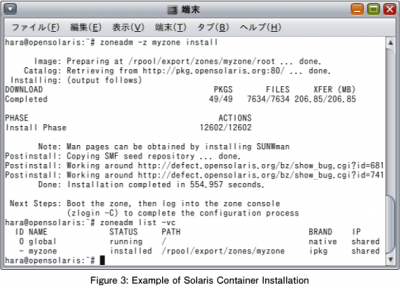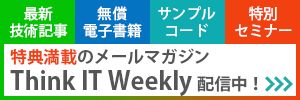Other standout management features
Other standout management features
OpenSolaris 2008.05 introduces Dynamic Tracing (DTrace) that allows the user to find performance bottlenecks in a system or application while your system is running.
With DTrace, debugging and tracing can be done without recompiling kernel or application for debugging. DTrace has tens of thousands of probe points instrumented. By running dtrace(1M) command, you can obtain information in kernels and other information from probes that match the trace conditions. Under normal conditions, probes are disabled, having no effect on performance.
It's worth noting that OpenSolaris 2008.05 has an analysis toolkit installed by default under /opt/DTT. It is written in D language executable analysis tools containing more than 200 usable out-of-the-box case examples.
For OpenSolaris, the latest virtualization technologies, such as Solaris Container, xVM, and xVM VirtualBox, are made available.
The features of the Solaris Container that have been extended by OpenSolaris 2008.05 include:
1. Local zones can now be installed using IPS.
2. A new brand, ipkg, is provided independently of the global zone.
3. In addition to zones that are initially installed with a minimal configuration, additional ones can be installed using IPS after startup.
At the point when OpenSolaris 2008.05 was released, the Solaris Container was not yet optimized for ZFS boot environments. This issue will be improved or enhanced in the future.
Improved independence from global zones made the availability of Solaris Container higher.
For instance, by giving each container its own package installation configuration, you can create an environment in which performance and security are optimally tuned to applications and services that are running on the containers. Solaris Container is immune to upgrades at global zones, thus allowing version configurations optimal for the compatibility of running applications to be held on the containers.
Conclusion
We introduced major features the OpenSolaris 2008.05 release in our four articles in series. OpenSolaris is an infant operating system (OS) that packs architecture accumulated for commercial UNIX over years and open source technologies having been supported as Linux-ware and freeware software.
The greatest benefit of OpenSolaris 2008.05 release is that it can be freely used by any one anywhere. For the performance of an OS, we cannot gauge it unless we try it out. However, installing a new OS on a valuable machine is an adventure that may involve some complications and risks.
So, try out it on a live CD environment. Please install OpenSolaris 2008.05 as a guest OS using VirtualBox or other virtualization technologies. We would like as many people as possible to experience this new OpenSolaris.
- この記事のキーワード


















